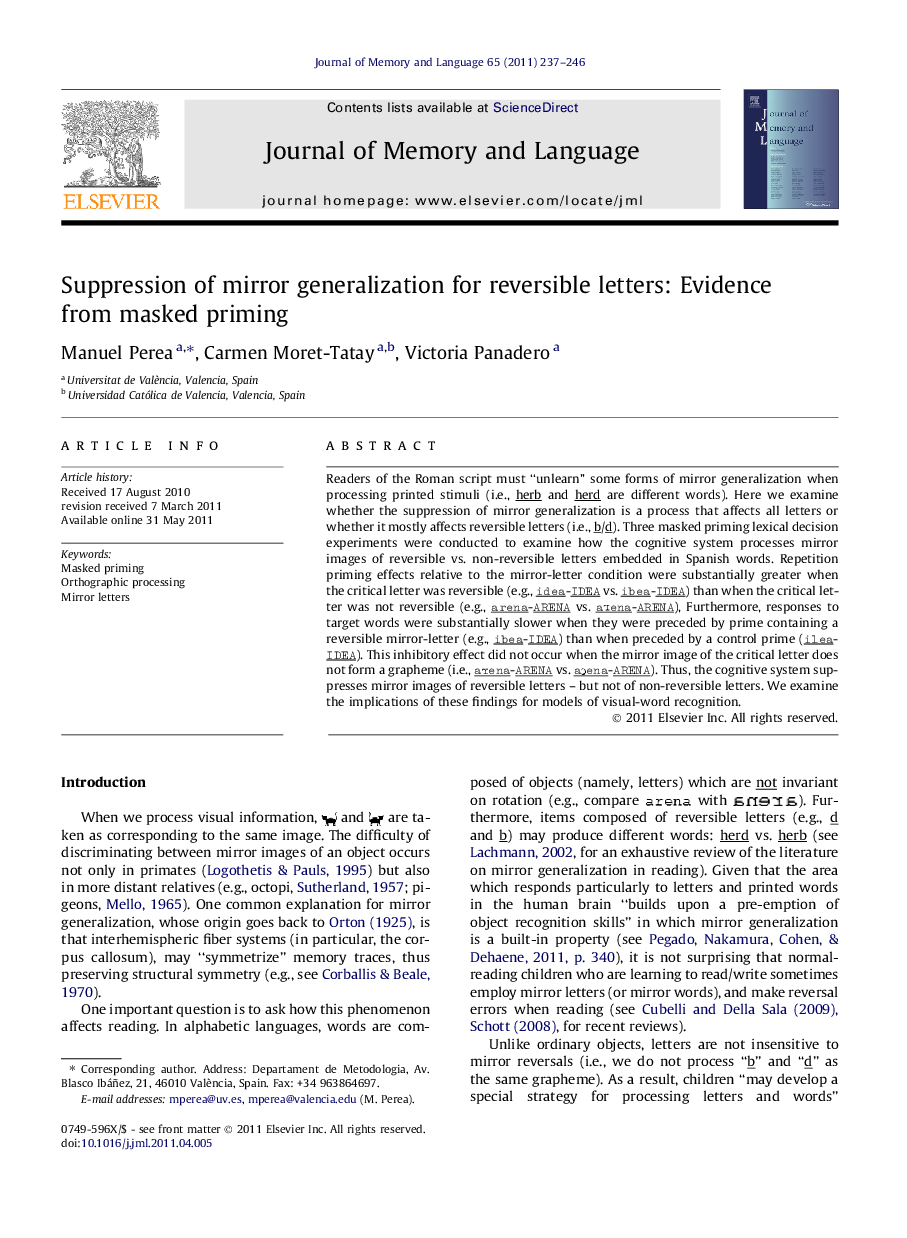| Article ID | Journal | Published Year | Pages | File Type |
|---|---|---|---|---|
| 932095 | Journal of Memory and Language | 2011 | 10 Pages |
Readers of the Roman script must “unlearn” some forms of mirror generalization when processing printed stimuli (i.e., herb and herd are different words). Here we examine whether the suppression of mirror generalization is a process that affects all letters or whether it mostly affects reversible letters (i.e., b/d). Three masked priming lexical decision experiments were conducted to examine how the cognitive system processes mirror images of reversible vs. non-reversible letters embedded in Spanish words. Repetition priming effects relative to the mirror-letter condition were substantially greater when the critical letter was reversible (e.g., idea-IDEA vs. ibea-IDEA) than when the critical letter was not reversible (e.g., arena-ARENA vs. aena-ARENA), Furthermore, responses to target words were substantially slower when they were preceded by prime containing a reversible mirror-letter (e.g., ibea-IDEA) than when preceded by a control prime (ilea-IDEA). This inhibitory effect did not occur when the mirror image of the critical letter does not form a grapheme (i.e., aena-ARENA vs. aena-ARENA). Thus, the cognitive system suppresses mirror images of reversible letters – but not of non-reversible letters. We examine the implications of these findings for models of visual-word recognition.
► We examined the processing of mirror images of letters embedded in words. ► A suppression of mirror generalization occurred for reversible letters (e.g., d/b). ► A similar effect did not occur for non-reversible letters (e.g., c, r). ► The same pattern of data occurred for adult readers and young readers.
